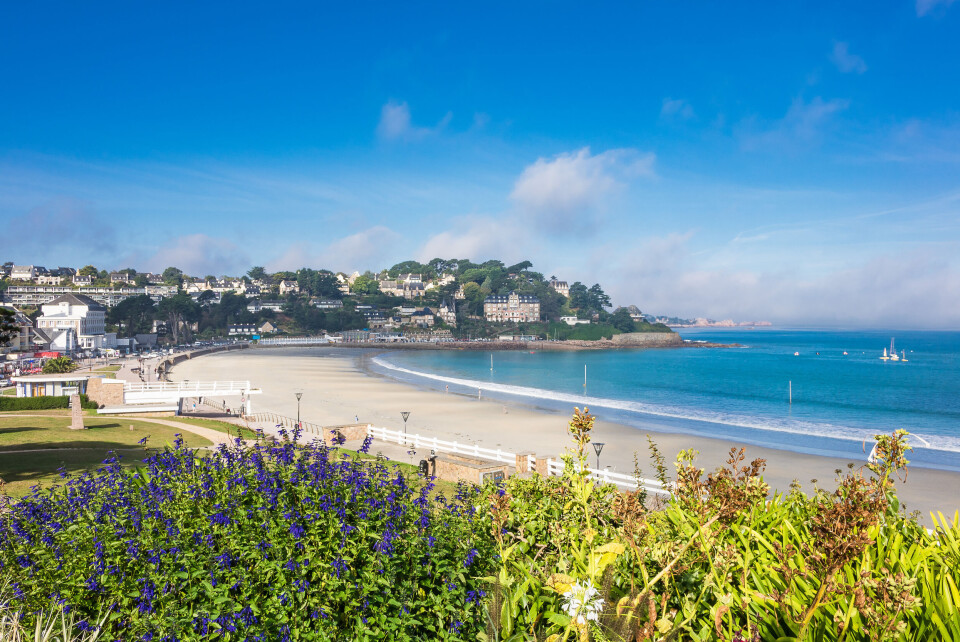-
Local election rule changes in France and why you may have a new mayor in 2026
Communes with fewer than 1,000 residents are particularly set to see changes from next year
-
Drive to bring 100% fibre coverage to Brittany
Copper-based internet is being phased out even on remote islands
-
Brittany will be the best place to watch this week’s lunar eclipse in France
The longest view will be in Ouessant, the small island off the far west of the region
Brittany votes to ask for autonomy from France after Corsica statement
It is too early to talk about independence but the French government’s concession to ‘consider’ autonomy for Corsica gives Brittany hope for more local power

Brittany’s regional council has voted by a large majority to ask for autonomy from France – inspired by recent developments in Corsica.
Autonomy, as opposed to independence, involves a transfer of more legislative and executive powers from central government to a region in areas which do not directly depend on the national state such as defence, foreign affairs, immigration and currency.
Council vote is start of autonomy process
Brittany’s demands follow a statement by Interior Minister Gérald Darmanin that France is ready to consider autonomy for Corsica, a long-standing demand of many of the nationalists who rule its regional authority. Others want independence.
There is also a demand for Corsican to be designated an official language alongside French.
Read more: France could enable autonomy for Corsica after weeks of protests
Read more: Why are there angry protests against the French state in Corsica?
Stéphane Perrin, vice-president of the Brittany council charged with relations with the government, said: “It is far too early to even say whether we want to have a model like Wales or like Scotland which has its own prime minister and government.
“But by this vote we have told the government we want things to start to move.”
The council is asking for discussions to start about what powers can be transferred.
Financial reports needed on Brittany
Mr Perrin said: “We do not know even if Brittany is a net tax contributor to the state, or a region which is supported, because no one in the government seems to have done the sums, or if they have, they have not been reported.
“What we do know is that, per head of population, we receive much less money from the state than many other regions.”
Speaking days before the presidential election, Mr Perrin said that if Emmanuel Macron is re-elected and has a parliamentary majority, he hopes talks will start in September.
“The government opened the door by offering more decentralisation to Corsica, and cannot now just shut it in our face.”
Lack of local knowledge from Paris policy-makers
He said autonomy has support among residents. “They might not be interested in the ins and outs of who runs what, but they are interested in having local decisions made by local people.
“The most obvious recent example was during the Covid lockdowns when the government in Paris banned people from the beaches.
“Anyone who knows Brittany knows we have kilometres of empty beaches where people can exercise without crossing the paths of anyone else and the ban made people angry about a policy decided in Paris with no consideration for local conditions.
“For most people that’s what the new status will be about.”
Regional borders in question
In the same vote, the council called for the return of parts of Loire-Atlantique which were taken from the historic boundaries of Brittany.
Alsace is another area with a nationalist movement, but its most pressing issue has been its existence at all, apart from in a historical and cultural sense.
It disappeared from the map in the reorganisation of the regions in 2015, when Grand Est was created from Alsace, Lorraine and Champagne-Ardenne, but was partially resurrected last year with the creation of a ‘European Collectivity of Alsace’.
This new authority took some responsibilities from the departmental councils of Bas-Rhin and Haut-Rhin, which still exist.
During a recent visit, Mr Macron said he was open to the possibility of Alsace leaving Grand Est.
A consultation by the European collectivity in December found that a large majority in the area favour this.
Related articles
Mysteriously skewed Brittany cathedral continues to confound experts
From France’s Eurovision entry to Harvard: Five Breton language facts
Macron wins second term as president: How did your area vote?
























